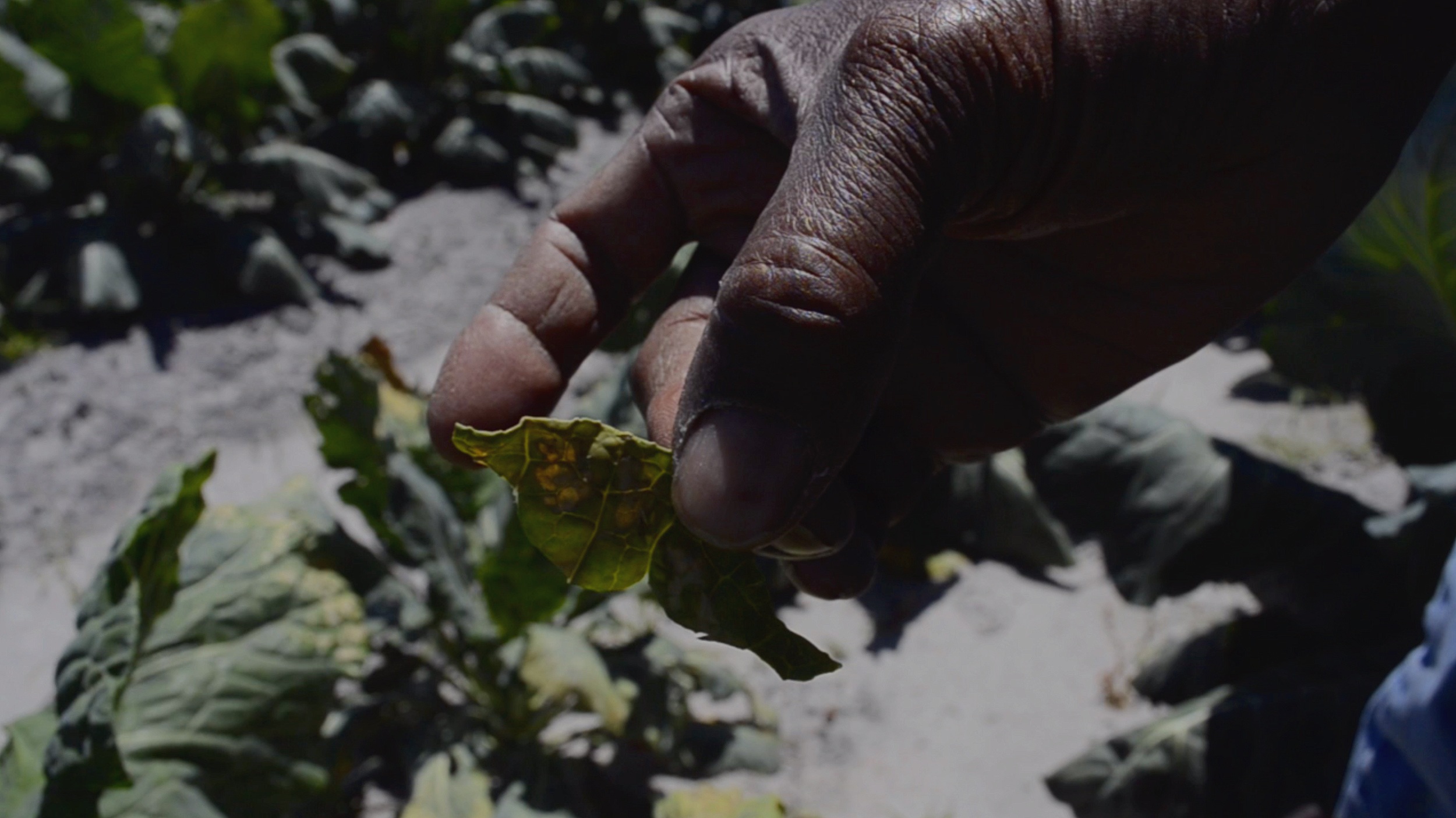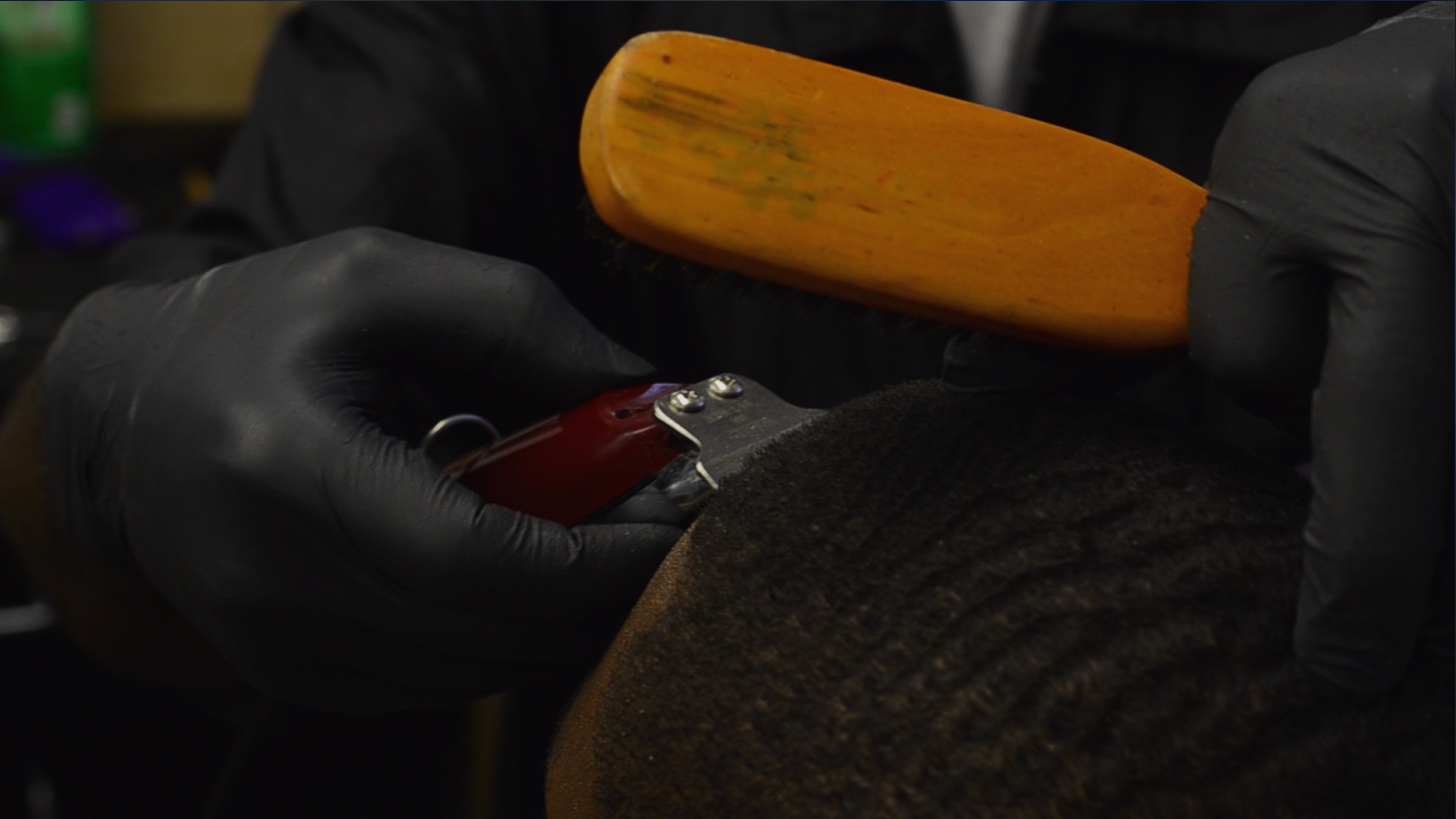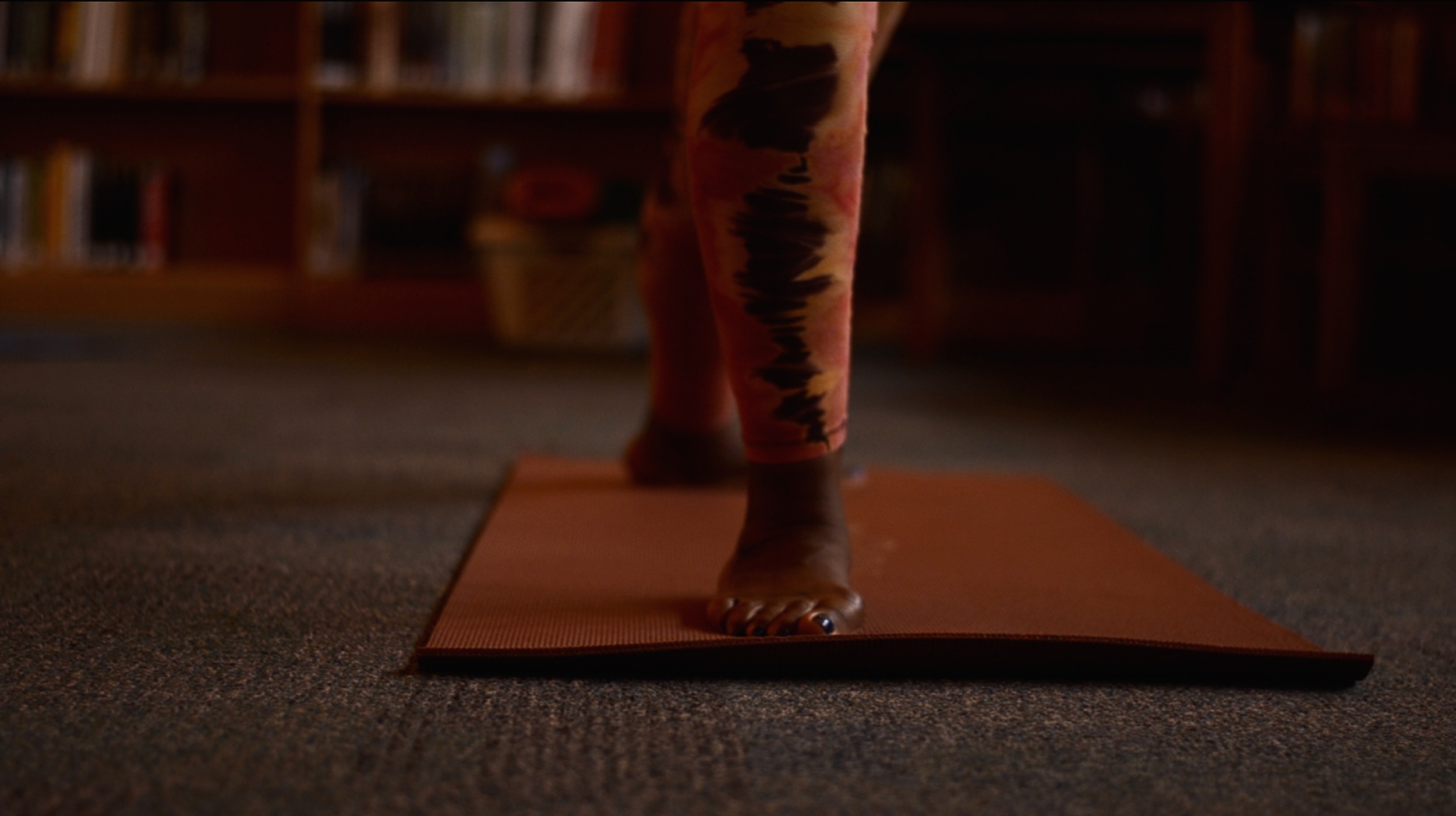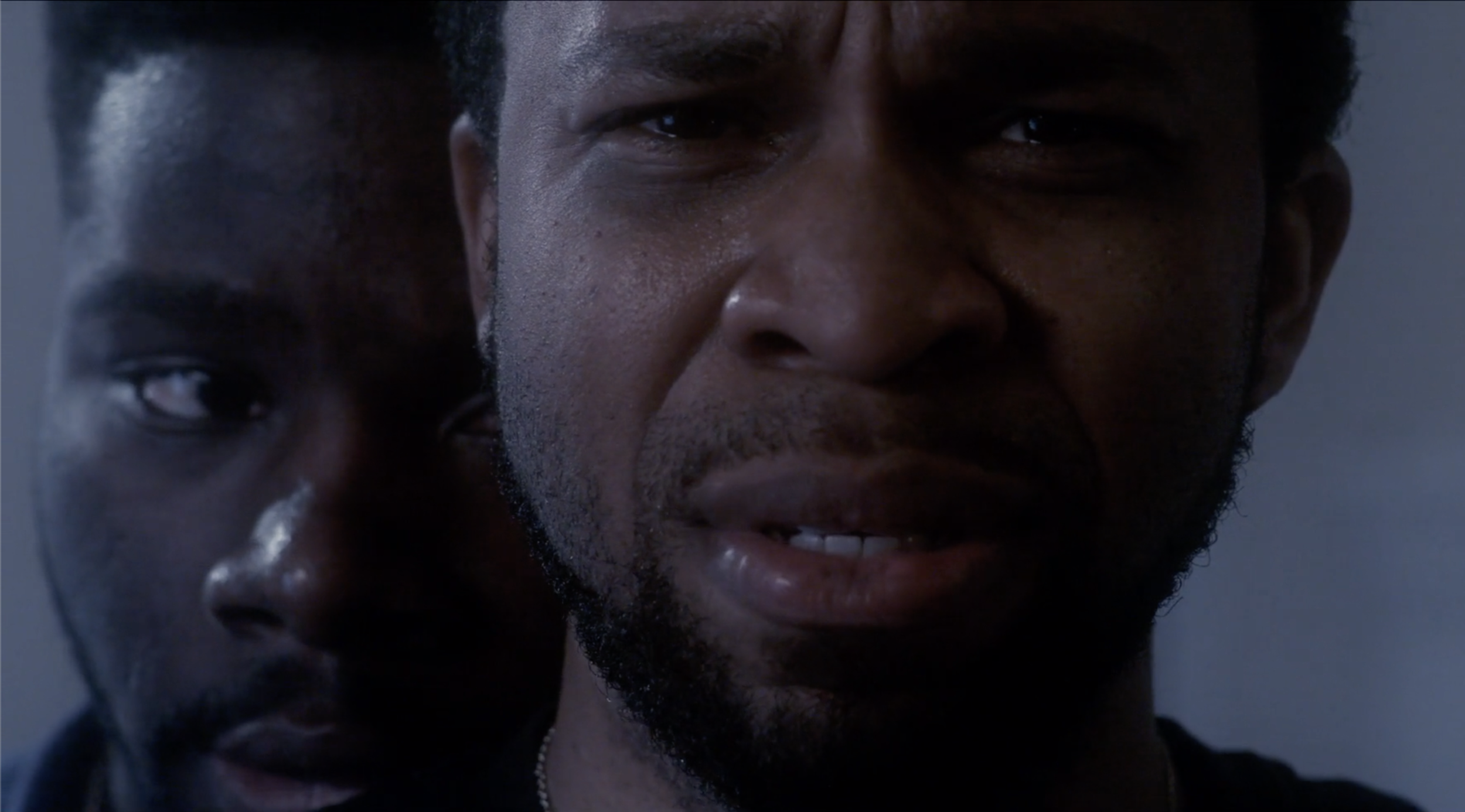Journalism

Enough is Enough
By: Tia Patrick
Being incarcerated gave her patience, but it also gave her motivation to live a better life. Doretha Jones is a mother, grandmother and Northeast Gainesville resident trying to serve the community that helped her through one of her toughest times — prison.
Jones is new to activism, but she doesn’t allow that to deter her from reaching the community the best she can with the resources available. So, on May 4, 2019, Jones — along with the help from the We are for Jesus Christian Center and Bishop Newton R. Williamson Jr. — held an event on N.E. 8th Avenue across from the area where 31-year-old Montez Davis had been killed a few months earlier on March 9, 2019.
Pray for My City: Enough is Enough was Jones’ first major attempt at bringing unity to her community, and she hopes to make it a monthly event. This led to her story being featured in many local news publications, including the Gainesville Sun. However, Jones’ success was short lived due to the lack of resources and harassment that began to directly affect her personal life and family when trying to plan her next Pray for My City event for June 8, 2019.
Unbeknownst to her, Jones began to fall under what Paul Gorski would consider emotional-dispositional burnout. This form of burnout happens when an activist often struggles with profound personal responsibility for eliminating the issue although they understand the scope of structural racism and institutionalized oppression. These activists tend to feel isolated from others and mainly only focus on their activism. This kind of outlook contributes to rapid emotional fatigue and intense frustrations with lack of progress with their social-justice movements.
“I am stressed.”
Jones details in a follow-up interview on June 11, after not having received enough donations despite working around the clock. She fell short of finding items such as a generator and port-a-potties for her desired location on N.E. 8th Avenue. This left Jones stressed out and in the deeper stages of her burnout.
However, Jones still put her focus on bringing unity to her community in hopes of decreasing the violence on the east side and to get through her burnout, she leans on her lively grandchildren and writing poetry.


It Is Personal
By: Tia Patrick
From Loudd Magazine and Loudd Conversations to running for city commissioner of District One, Tyra Edwards — also known as Ty Loudd — is no stranger to experiencing burnout in the midst of her trying to bring attention to her community.
Ty explains how she enjoys reinventing her activism, similar to how someone would change around their living room furniture to prevent from burning out.
“You’re still enjoying the TV, still enjoying the couch, but it is somewhere different.”
After spending time unapologetically away from her activism, Ty comes back refreshed with new ideas and ready to continue to fight against issues like racial injustices and gun violence in her community.
On June 6, 2019, Ty Loudd stood in front of a room full of white allies and openly explained the need for gun control in the black community and how it needs just as much attention as the recent school shooting that has caused society to finally start to discuss gun control.
Ty Loudd has been through burnout before and has made a commitment to herself to never fall victim to it again. She encourages all activist, new or old, to focus on themselves just as much as they focus on their community and to take time away from activism in order to be a better and more energetic activist.
“Call it a comeback.”


A Man and His Land
By: Tia Patrick
Kenny Camp was born and raised in Alachua County and is working to keep the family farm alive — for now. He has worked on the farm since graduating high school but worries the farm will die with him.
In 1920 Black farmers made up 14 percent of all farmers in America and owned 16 million acres of farmland. Today Black farmers make up less than 1 percent of U.S. farmers.
“I know change is going to come,” he said. “I hate that the land itself is probably going to come to an end.”
A third-generation farmer, Camp considers the future of the land and the farming industry.
“I don’t know what’s going to become of the farm. I guess it’s something that I can’t really worry about, because I don’t have control over that.”

More than a Barber
By: Tia Patrick
"I'm more than just a barber."
Many people can relate to going to sit in their long-time or favorite barber or beautician’s chair to rejuvenate their hair and sometime rejuvenate their life. The relationship a hairstylist has with their client can sometimes be seen as a sacred relationship - especially in the black community.
Cameron Howard is a barber new to the Gainesville, Florida area trying to learn his way around the community while working as the rookie at one of the most prominent black barbershops in town, Fades and Fros.
Howard talks about how he uses his barbering platform get to know the community and provide his clients with more than just a haircut.
“I feel like it’s a role I play with being a barber and being a counselor,” Howard said.
He uses the short time he has with each of his clients to play the role of a supportive figure who can give much need advice or line ups.

A Different Way
By: Tia Patrick
When people hear the word “Yoga” they may think of a room full of middle-aged moms and wives trying to find calm before entering back into their routine chaos. Others may even think of the stone carved figures in India circa 3000 B.C that depicted some of the first recordings of various yoga postures.
What you may not immediately associate yoga with is black, inner-city kids that deal with the daily stresses of living in systematic poverty and unstable environments.
According to the National Alliance on Mental Illness, Black Americans are at a greater risk to be brought up in unhealthy environments and societal systems. The violence and uncertainty associated with growing up in these poor environments also plays a major role in why, compared to the general population Black Americans are 20 percent more likely to develop serious mental health issues during their lifetime.
“It’s like an angry ocean, but after yoga class it’s like smooth, nice lake and peace and harmony.”
A charming third grader recounts as she talks about what she learns and how she benefits from At the Wellness Network’s after-school “Yoga is 4ME2” sessions.
At the Wellness Network is a not-for-profit organization located in Gainesville, Florida that focuses on the health and wellness of deserving families. This organization as well as The Yoga is 4ME2 Project was created by Pamela Koons, a journalist for the Gainesville Sun and yoga expert.
Koons explained how she likes to use her yoga experience to reach the children before the stress and harsh realities of their worlds take over.
Some of her newcomers have never seen a yoga mat before or performed deep breathing exercises in a yoga pose. The anxiety of the unknown is met with the calming of the new practice and postures.
It is no secret that yoga and mindful meditation work; which is why it’s been around for so long. But using those old practices to help bring some calm to kids living in chaotic home environments can be beneficial to not just the child but the parent and teachers that have to deal with that child on a daily basis.
The best part about yoga is you don’t need anything, but your body and mind and it can be done anywhere without struggle once you learn to tap into yourself.

Unexplainable Feelings.
Archival piece paying homage to my older brother, Vince Robinson who was gunned down during a brawl at Kicker’s Sports Bar in Flint, Michigan May 2018.
Rest in Peace Vince Robinson



